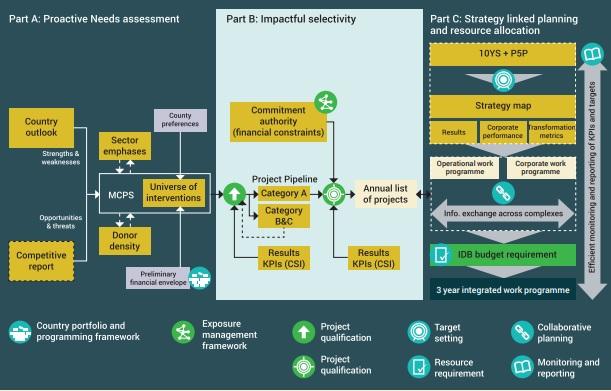Integrated Strategic Programming Framework
Over the 40+ years of its existence, the Islamic Development Bank has made significant contributions to the socioeconomic development of its Member Countries (MCs) as well as to Muslim communities of nonmember countries.

Challenge
-
IsDB took a reactive approach to making interventions, as opposed to proactively working with MCs to assess critical needs.
-
Project selection was not well aligned with MC needs (e.g. infrastructure financing went to countries in most need of infrastructure development).
-
Resource allocations needed to be more in line with the Bank’s corporate strategy in order to more effectively address specific operational, organisational and financial sustainability challenges.
To deal with these key shortcomings, the Presidency Programme introduced an Integrated Strategic Programming Framework (ISPF) across the organisation, which includes: w Proactive needs assessment of the MCs to identify current needs and more effectively foresee future requirements, thereby establishing IsDB’s transformation agenda for these MCs.
Solution
To deal with these key shortcomings, the Presidency Programme introduced an Integrated Strategic Programming Framework (ISPF) across the organisation, which includes:
-
Proactive needs assessment of the MCs to identify current needs and more effectively foresee future requirements, thereby establishing IsDB’s transformation agenda for these MCs
-
Ensuring impactful selection of projects through a Project Qualification and Prioritisation Matrix that aligns project selection with MC needs and IsDB priorities
-
Linking strategy and resources (i.e. operations financing and administrative budget) by ensuring robust target-setting and cascading of priorities, a comprehensive and collaborative approach to planning, linking the resources requirement to targets, and finally a strong monitoring framework.